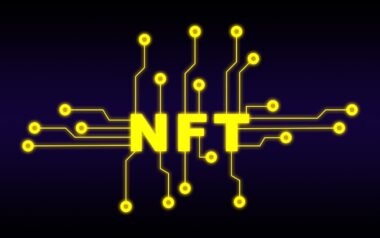The Role of Ethereum in Peer-to-Peer Transactions
Ethereum plays a crucial role in fostering peer-to-peer (P2P) transactions by leveraging smart contracts and its unique blockchain infrastructure. Unlike traditional payment systems where intermediaries facilitate transactions, Ethereum enables direct interaction between users. This decentralized approach enhances security and efficiency, eliminating the need for trust in a third party. Ethereum’s Turing-complete programming language allows developers to create complex decentralized applications (dApps) that facilitate various financial services. Through smart contracts, parties can agree on terms and execute transactions automatically. As a result, Ethereum provides a high degree of transparency, making it easier to audit transactions and establish trust among participants. P2P transactions benefit from lower fees due to the absence of intermediaries. By utilizing Ether, the native cryptocurrency of Ethereum, users can transact seamlessly, regardless of geographical constraints. Moreover, the Ethereum network supports a variety of token types, allowing assets to be tokenized for diverse use cases in P2P scenarios. In summary, Ethereum’s blockchain technology and innovative features are indispensable for streamlining and securing P2P transactions, paving the way for a more decentralized financial ecosystem.
Another significant aspect of Ethereum in P2P transactions lies in its ability to enhance financial inclusivity. Traditional banking services often exclude people without access to banking infrastructure, limiting their financial growth. Ethereum provides an alternative by enabling unbanked individuals to participate in global markets through P2P transactions. With just an internet connection, users can engage in Ethereum’s ecosystem without needing a bank account. Furthermore, Ethereum and cryptocurrencies allow users to hold, transfer, and exchange value freely, facilitating economic interactions that were previously unattainable. For small businesses and entrepreneurs, utilizing Ethereum means quicker transactions and lower operational costs, as they can directly connect with customers and suppliers through dApps. This not only democratizes access to financial services but also fosters innovation by providing a platform for new business models to emerge. Additionally, Ethereum’s ability to facilitate microtransactions opens up new possibilities for content creators and service providers, allowing them to earn income in previously unimaginable ways. Overall, Ethereum’s role in P2P transactions signifies a transformative shift in how individuals interact economically, creating a more inclusive and efficient financial landscape.
Challenges in Ethereum’s P2P Transactions
Despite Ethereum’s potential to revolutionize P2P transactions, several challenges need addressing. Scalability remains a prominent issue; as more users engage with the network, transaction speeds can decrease significantly, leading to frustrations. High demand can also drive up transaction fees during peak times, making it less appealing for individuals looking for cost-effective solutions. Another challenge is the complexity of using Ethereum for everyday transactions. Many users may find it daunting to navigate wallets, gas fees, and smart contracts, thus limiting its adoption. Security vulnerabilities are also a concern; while blockchain technology is inherently secure, poorly designed dApps can expose users to risks. Furthermore, regulatory uncertainties around cryptocurrency can hinder wider acceptance and integration of Ethereum into mainstream finance. Clear guidelines are needed to ensure the security of users and compliance with financial laws. Despite these challenges, developers are actively working on solutions such as Ethereum 2.0, which aims to improve scalability and reduce energy consumption. Through ongoing innovations and community efforts, Ethereum seeks to overcome these obstacles, ensuring its role in P2P transactions continues to evolve sustainably.
Ethereum’s community plays a vital role in supporting its P2P transaction capabilities through collaboration and innovation. The Ethereum community is diverse, comprising developers, users, and advocates committed to enhancing the ecosystem. Frequent hackathons and meetups foster innovation, allowing developers to experiment with new ideas and share successful projects. Additionally, the community creates educational resources to help new users understand Ethereum’s technology and its applications in P2P transactions. This grassroots approach to development ensures a continuous flow of fresh ideas and updates, enhancing usability and functionality. Moreover, community-driven projects often focus on solving specific problems, such as wallet security, identity management, and transaction speed, which are critical for broad adoption. The feedback from users also plays a crucial role in guiding improvements in the network’s infrastructure. By prioritizing user experience, Ethereum’s community can address issues that frequently arise in P2P transactions. This collaborative spirit has led to the development of various decentralized exchanges (DEXs) and lending platforms that facilitate peer-to-peer trading and borrowing. Through the community’s efforts, Ethereum strengthens its capabilities and further solidifies its position in the P2P transaction landscape.
Real-World Applications of Ethereum in P2P Transactions
Numerous real-world applications demonstrate the effectiveness of Ethereum in enabling peer-to-peer transactions. DeFi (Decentralized Finance) projects are among the most popular, providing users with access to lending, borrowing, and trading without intermediaries. Platforms like Aave and Uniswap allow users to engage in finance simply and directly. These applications facilitate immediate transactions while overcoming traditional banking hurdles. Additionally, NFT marketplaces like OpenSea exemplify how Ethereum can transform peer-to-peer asset exchange, allowing users to buy, sell, and trade unique digital assets securely. Such environments empower creators by granting them control over their work and revenue streams. Furthermore, Ethereum warrants its legitimacy through partnerships with established businesses experimenting with blockchain solutions. Companies in various industries, including real estate and supply chain management, are exploring Ethereum’s capabilities for P2P transactions, enhancing transparency and efficiency. These advancements highlight not only the versatility of Ethereum but also its potential to reshape how assets are traded globally. As these real-world applications grow, they pave the way for a broader acceptance of blockchain technologies in everyday practices.
The integration of Ethereum into P2P transactions reflects a growing trend towards decentralized solutions across various industries. This shift is fueled by the desire for greater autonomy, transparency, and security in financial transactions. Many companies are exploring ways to incorporate Ethereum technology into their existing systems to benefit from these advantages. For instance, businesses are utilizing smart contracts to automate payment processes, ensuring efficiency and reducing administrative costs. Similarly, charitable organizations are accepting donations in Ether, promoting transparency by allowing donors to track their contributions on the blockchain. As public awareness and understanding of Ethereum grow, more individuals are inclined to use it for everyday transactions. Educational initiatives aimed at demystifying cryptocurrency also contribute to increased adoption rate. Furthermore, Ethereum’s focus on environmentally friendly approaches with the upcoming Ethereum 2.0 upgrade is likely to address concerns about energy consumption. As Ethereum continues to evolve, it is poised to provide even more valuable tools for P2P transactions, showcasing blockchain as a credible technology for a decentralized future. This growing trend hints at a societal shift towards more equitable and inclusive exchanges in the global economy.
The Future of Ethereum in Peer-to-Peer Transactions
The future of Ethereum in peer-to-peer transactions looks promising as it accumulates attention and investment. With advancements in technology such as Ethereum 2.0, the network expects to solve scalability issues and enhance transactional speed. Such developments will make Ethereum an even more viable option for P2P interactions, encouraging broader acceptance among different populations, from tech-savvy users to traditional entities. Moreover, the rise of innovative solutions, like layer-two protocols, aims to lower transaction costs and maintain blockchain security. In terms of regulatory developments, as governments increasingly contemplate the implications of cryptocurrencies, clarity regarding regulations is also anticipated. This could impact how companies and individuals engage with Ethereum, perhaps making it more mainstream. Furthermore, as more businesses adapt their operations to accommodate digital assets, Ethereum stands to gain a critical foothold in both financial and non-financial domains. The creation of decentralized autonomous organizations (DAOs) could also redefine how peer-to-peer governance operates, allowing users to collectively manage assets and decision-making processes. In essence, Ethereum’s evolution indicates a transformative shift towards more peer-to-peer networks, marking a significant leap in the digital economy.
In conclusion, the role of Ethereum in peer-to-peer transactions is transformative and multi-faceted. By leveraging its decentralized architecture and smart contract capabilities, Ethereum enables users to transact directly and securely without relying on traditional intermediaries. The inclusion of financial inclusivity, real-world applications, and community innovation further enhances its relevance in modern finance. Nevertheless, challenges remain, such as scalability, security concerns, and regulatory hurdles that must be addressed for Ethereum to realize its full potential. As the ecosystem continues to evolve, collaboration among developers and users fosters a vibrant environment conducive to growth and experimentation. With projects aiming to tackle existing issues and enhance user experience, Ethereum is better positioned to facilitate P2P transactions efficiently. The growing acceptance of Ethereum signifies an impending shift in how financial transactions are conducted globally. As more people embrace digital currencies, Ethereum stands at the forefront of this revolution, shaping the future of economic interaction. The ongoing efforts to improve scalability and user adoption will pave the way for Ethereum’s role in creating a more decentralized financial landscape. As awareness spreads, Ethereum’s impact on P2P transactions will only continue to grow.





